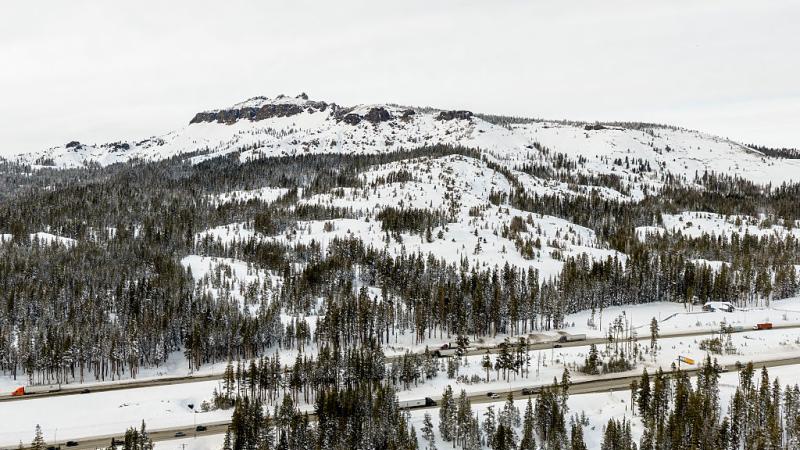Arizona AG prosecutes ballot harvesters, as GOP state lawmakers push to ban drop boxes
"We are making some progress, but it's not fast enough, and I want to see more," said Arizona GOP Senate primary candidate Blake Masters.
In Arizona, Republican politicians are continuing to investigate irregularities that marred the 2020 presidential election as state Attorney General Mark Brnovich prosecutes ballot harvesters and state legislators vow to ban ballot drop boxes.
Brnovich announced Thursday that Guillermina Fuentes, a former Democratic mayor of San Luis and current school board member, has pled guilty to ballot harvesting during the August 2020 primary election.
Fuentes, who serves on the board of the Gadsden Elementary School District, was part of a ballot harvesting scheme in Yuma County in which early ballots were collected from voters and dropped off at a ballot box on primary election day.
Fuentes "knowingly collect[ed] ballots from another person, and those early ballots belonged to individuals for whom I am not a family member, household member, or caregiver," she admitted, according to the attorney general's office.
Ballot harvesting is a class 6 felony in Arizona, meaning that Fuentes will lose her ability to vote and must leave elected office.
The former mayor was indicted in December 2020 with Alma Juarez, who pled guilty in March to ballot harvesting. Fuentes admitted to later providing the early ballots to Juarez.
As part of the plea agreement with Fuentes, prosecutors dropped three additional felony charges — one each of conspiracy and forgery and another for ballot harvesting — that were added last October.
According to investigation records obtained by the news wire from the attorney general's office, less than a dozen ballots could be linked to the former mayor.
Fuentes is due to be sentenced on June 30, and Juarez's sentencing is scheduled for June 16.
"The crime carries a presumptive sentence of 1 year," according to the plea agreement, with a minimum of 6 months and a maximum of 18 months (or 2 years, if the trial judge finds "exceptional circumstances").
Arizona GOP Senate primary candidate Blake Masters, who was endorsed on Thursday by former President Donald Trump, said in an interview Friday on the "Just the News, Not Noise" TV show that he doesn't believe Brnovich — one of his opponents in the primary race — is serious enough about election fraud.
"Brnovich gave this woman a plea deal," said Masters, referring to Fuentes. "She's gonna get off light, they downgraded it to like the lightest felony, it will be treated as a misdemeanor. And it's like, why is Attorney General Brnovich not serious about prosecuting election fraud, right?
"Why can't we get the state Legislature to even have a vote on very commonsensical election laws, you know, that would tighten up the early voting and a lot of the known vulnerabilities? And so I'm very frustrated. We are making some progress, but it's not fast enough, and I want to see more — the American people, the people of Arizona here, demand to see more."
In his endorsement of Masters, Trump also slammed Brnovich, calling him "such a disappointment."
"The Arizona State Senate gave him overwhelming evidence of fraud and irregularities, issued a report which was damning, and he did nothing about it," Trump lamented. "In other words, all talk and no action!"
Fuentes' guilty plea comes the same week as election integrity group True the Vote gave a presentation to Arizona state legislators on ballot harvesting.
True the Vote founder and president Catherine Engelbrecht and election investigator Gregg Phillips on Tuesday explained their findings of ballot trafficking in Maricopa and Yuma counties.
Using cellphone tracking data, True the Vote found that alleged ballot traffickers visited ballot drop boxes in those two counties at least 5,700 times over the course of the 2020 election, The Epoch Times reported.
The group, whose work was the focus of Dinesh D'Souza's "2000 Mules" documentary, said that they learned through the cellphone tracking data which nonprofit organizations the alleged ballot traffickers were involved with in their operation.
"When you have the level of accuracy that we do, you can assess what address you're talking about and what organization is at that address," Engelbrecht said during the presentation, according to Right Side Broadcasting Network.
Engelbrecht said that while she "would love to put that list out and let the chips fall where they may ... we also need law enforcement to be able to do their jobs"
True the Vote recommended to state legislators that they clean up voter rolls with real-time technology, end the mass mailing of ballots, and get rid of ballot drop boxes, or, if unable to eliminate drop boxes, then at least secure them with video surveillance, the Epoch Times reported.
"The exploitation targets the most vulnerable communities," Engelbrecht said. "This is voter abuse. This is not about Republicans or Democrats. This is about securing the vote."
The Republican lawmakers who attended the presentation expressed their support for moving forward with HB-2289, which would make ballot drop boxes illegal in Arizona.
















